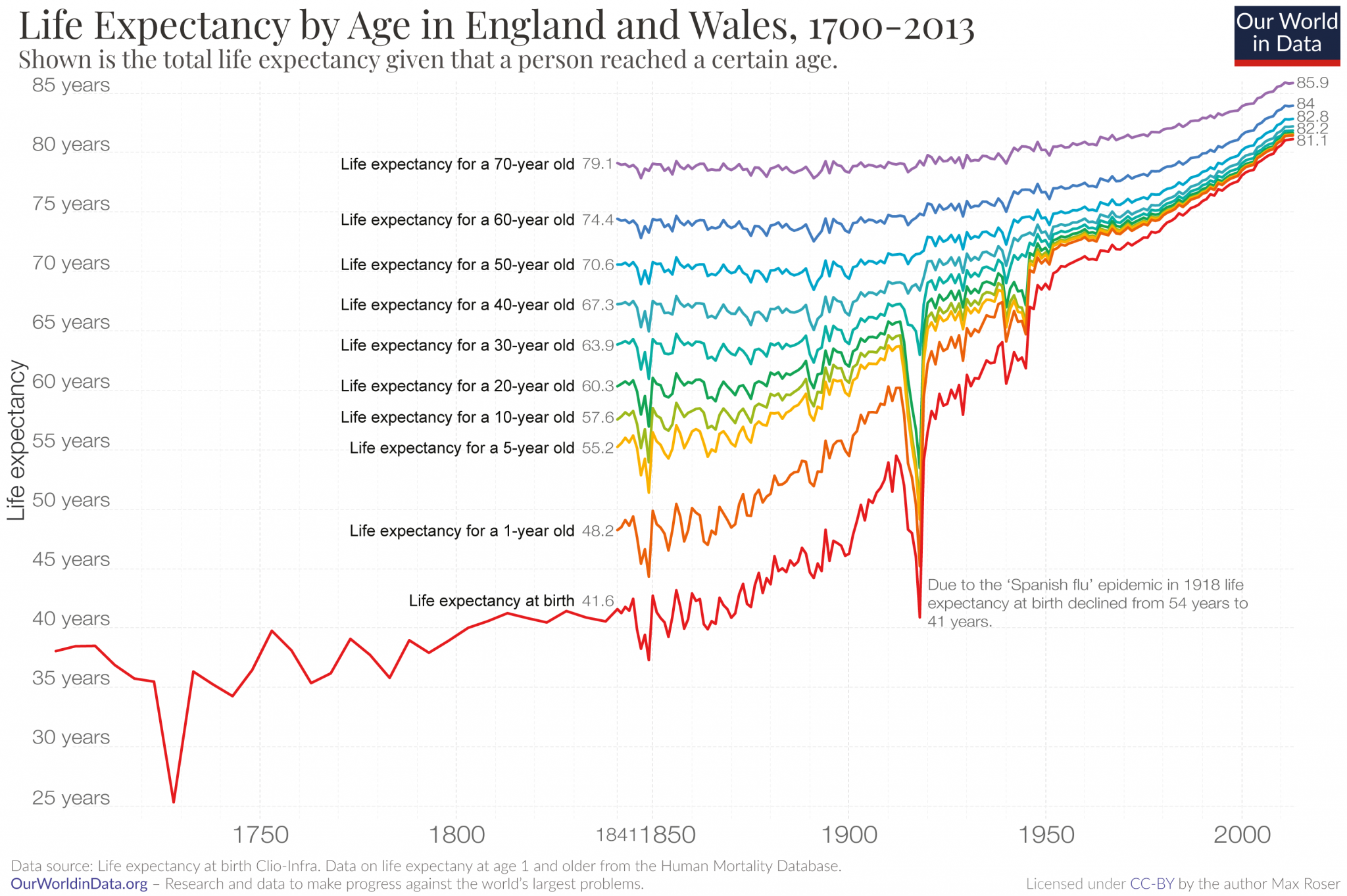The Selection Shadow - Why we still age
February 10, 2022•502 words
Reading time: 3.5 min
In this post I wrote long ago, I discussed how evolution has fundamentally not provided humans with an answer to non-infectious, chronic diseases and ageing.
"However, ageing and cancer are fundamentally problems evolution has not provided us with a solution with.
Ageing can be said to be a root cause for all diseases. However, our biological defence against it is arguably lacking due to our lack of evolution in this regard. Using the theory of natural selection, for us to effectively evolve to protect ourselves against such a disease, we have to die with that disease as the cause. However, given that humans, for most of our existence, died young and to causes not related to ageing and cancer, we never developed a mechanism of protection against them that could last past our past mediocre life expectancy (most can expect to live to 40)."
A correction I should make on the life expectancy of 40 is that I did not consider how infant mortality was very high in the past. Once past a certain infant/toddler age, a person could reasonably expect to live into their 60s.
This phenomenon of natural selection exerting less of an effect on our bodies as we age was dubbed the "Selection Shadow".
Each of us is born slightly different, with each of us having some positive or negative variations. These are genetic variations or mutations.
Mutations beneficial to us that have an effect early on in life (before our peak reproductive age) are "selected" by natural selection.
An example would be why babies are considered cute. Human babies are helpless blobs that cannot survive on their own. It's likely that historically, babies that were born slightly cuter than the rest were paid more attention to and better cared for than babies that were born slightly less cute. Hence, babies which were cute were more likely to survive better, mature and then be able to have offspring. Cute babies were "selected" over less cute babies.
However, with mutations relevant to chronic disease and ageing, natural selection applies to a lesser extent. It does not matter how age and cancer/diabetes/hypertension/stroke resistant we are early on in life. Using the cute baby example, take two babies which are equally cute, but make one have complete resistance to cancer/diabetes/hypertension/stroke, and the other has a full predisposition to cancer/diabetes/hypertension/stroke. Both have a high chance to have offspring in their early adulthood. Let's say each has one offspring. Now age the two individuals into their middle ages. The 'resistant' individual (free of disease) would be more fit in terms of survival than the 'predisposed' individual (being now comorbid with cancer/diabetes/hypertension/stroke). Yet, both individuals are less likely to have children at this later age.
The late-life beneficial mutations were not particularly selected and passed on to more offspring, and late-life deleterious mutations were not selected against and still passed on.
This is one of the many theories for why we age and develop many age-related non-communicable diseases.
